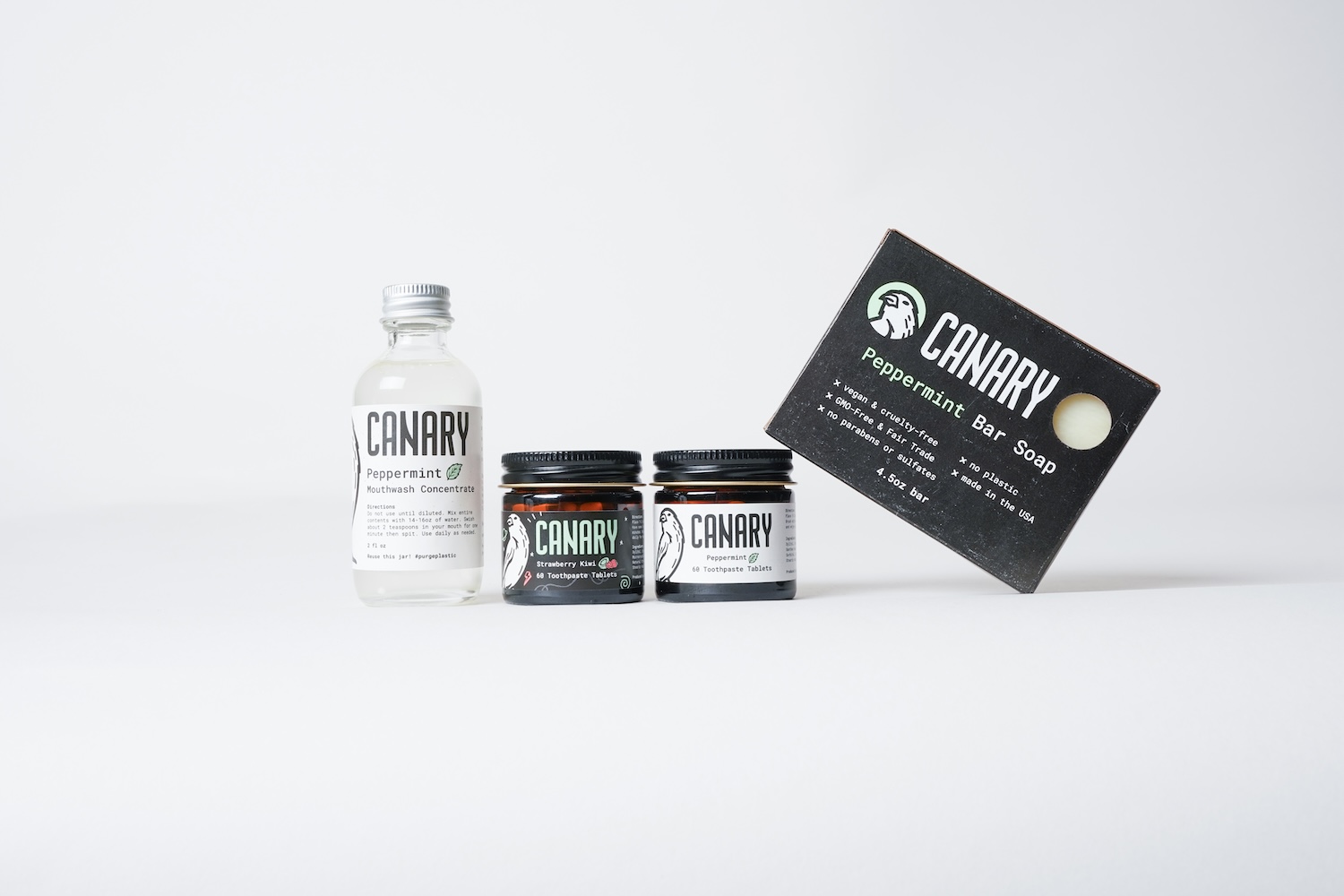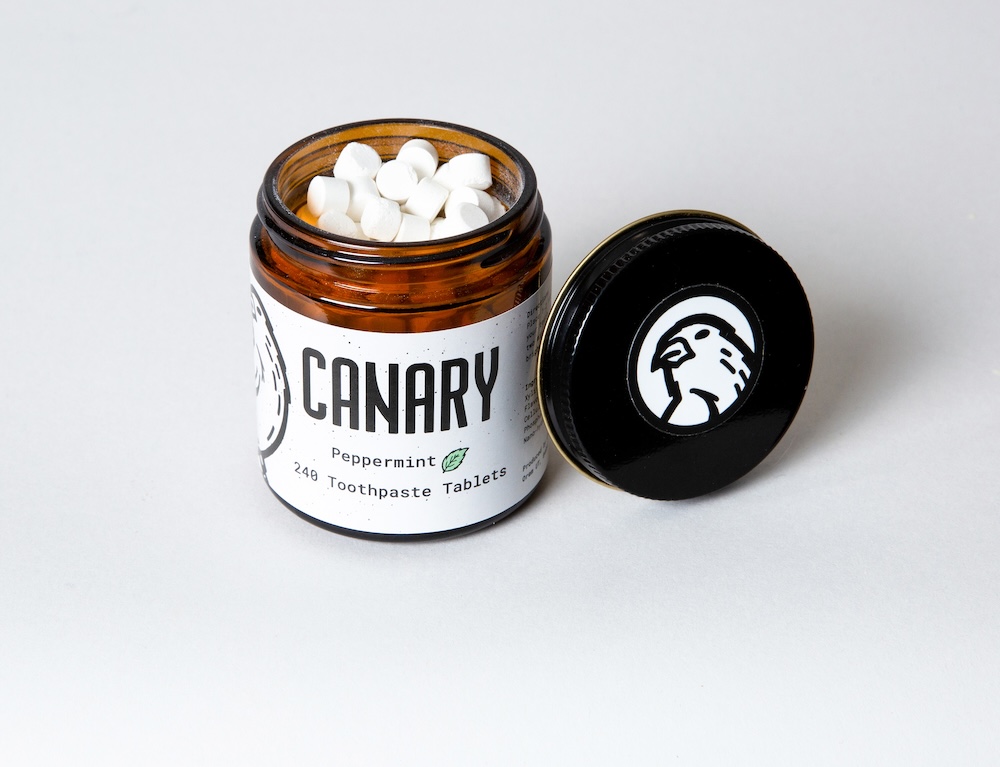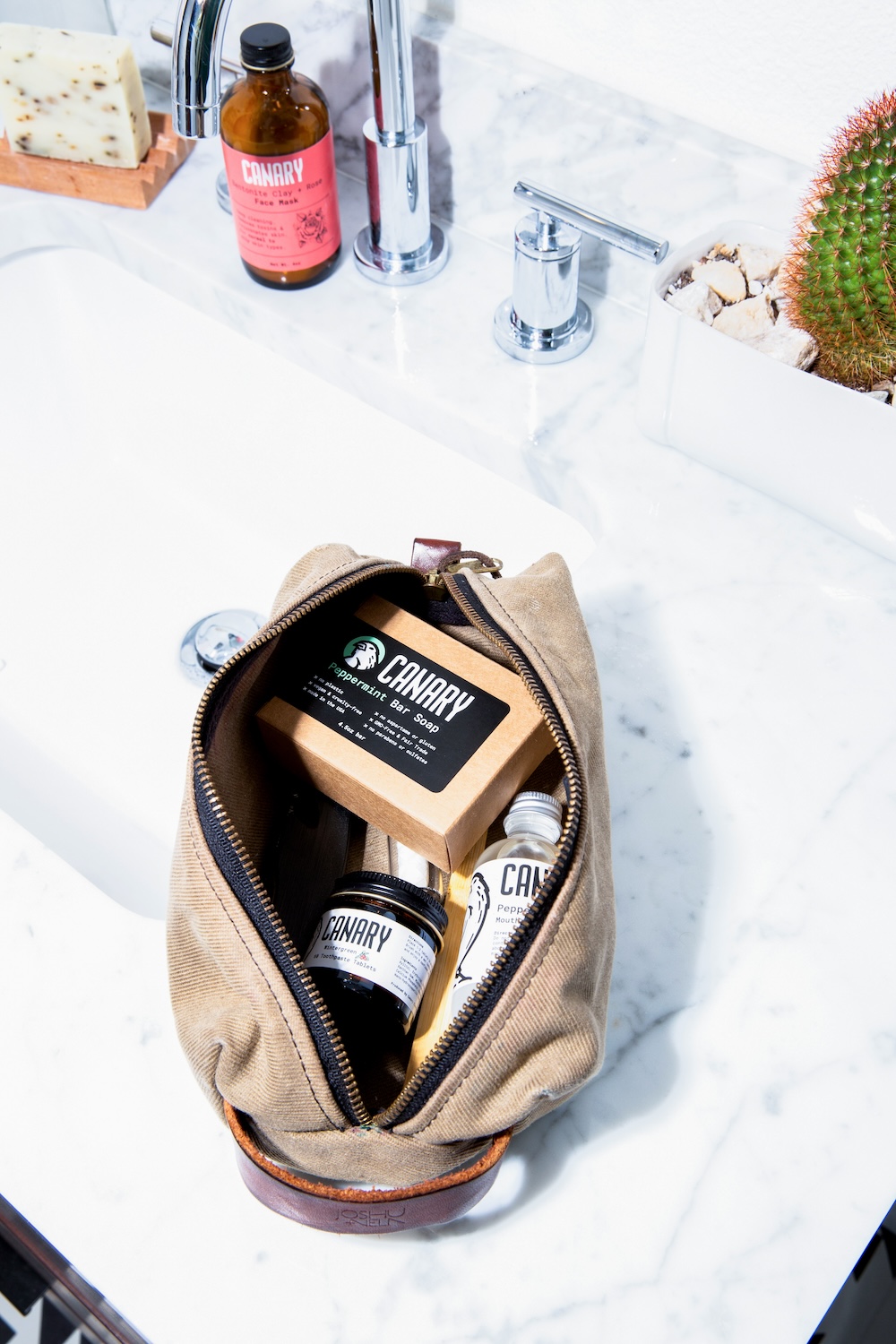
Canary Clean Products founder Luke Wilson demonstrates the amount of plastic packaging consumers can eliminate by choosing concentrates. (Image courtesy of Canary Clean Products)
More options for concentrated products are hitting the market as a new generation of home and hygiene brands aim to win over consumers. From toothpaste tablets to shampoo bars and detergent sheets, these products save a whole lot of space and packaging, as well as fuel savings for distributors and crucial reductions in carbon emissions.
Concentrated products reduce packaging
Canary Clean Products is one of the upstart brands vying for a piece of the market with a lineup focused solely on concentrated hygiene products. “I wanted to build a brand that was highly concentrated, so we lower our environmental footprint throughout the whole process [and] the whole lifecycle of the product,” founder Luke Wilson told TriplePundit.
“A lot of products are shipped with a lot of water weight, which makes them heavier and more costly to ship,” Wilson explained. That extra weight and bulk means traditional products require more trucks — and more fuel — to get them from the point of manufacture to the point of sale. And that means higher emissions. Instead of adding unnecessary water and charging consumers for it, brands like Canary are in a position to win over environmentally-conscious shoppers by being a part of the solution.
Canary makes bar soap, hand soap refills, toothpaste tablets, and concentrated mouthwash and face masks. The year-old company is also looking to expand into shampoos and conditioners, shaving cream, and laundry products — all of which can benefit from less packaging and a lower shipping weight made possible by concentrated products.

Canary’s products are packaged as minimally as possible in glass bottles, cardboard and paper pouches. The cardboard and paper packaging are both recyclable and compostable. And unlike many products that carry misleading compostability claims, the packaging doesn’t have to be sent to a commercial facility — it can be composted at home so long as it is shredded first, Wilson explained.
While the brand hasn't calculated exactly how much plastic its customers have kept out of landfills by choosing concentrates so far, Wilson estimates that each four-month supply of toothpaste tablets eliminates between two and four toothpaste tubes, which are generally not recyclable. Meanwhile, the brand's concentrated hand soap refills replace up to 12 plastic pump bottles, also avoiding a considerable amount of waste. “We need to recap our results for 2023, which we're wrapping up,” he said. “But it is something that we plan on reporting out, [as far as] how much we've saved versus the traditional products.”

Concentrated formulas mean products last longer, saving money and emissions
Concentrated formulas don’t just save on packaging. They also cut down on how often consumers have to purchase products, often saving money in the process. For example, a single shampoo bar can deliver the same amount of washes as up to three bottles of shampoo. Since the bars are available at comparable (or even lower) price points, customers can enjoy substantial savings.
Canary also claims its bar soap lasts three to four times longer than most on the market, Wilson said. At 4.5 ounces, part of this is due to its size. But it’s also because of how the soap is milled and its particular ingredients.

Small specialty brands are in a unique position to bring change
Naturally, the planet would be better off if major brands immediately switched to concentrates as well. Instead of waiting for new, smaller brands to win the hearts and minds of consumers, these larger companies could make a big difference in packaging and emissions — and fast. However, consumers are also becoming increasingly disenfranchised with traditional brands, thanks to the perfect storm of greedflation-inspired price hikes and ever-shrinking contents. As a result, consumers are less likely to trust itty-bitty packages of concentrated products from the same companies that have already been subjecting them to shrinkflation.
Companies like Canary have another advantage: Their business models tend to be more in line with a public that is increasingly concerned with ingredients. The brand's lineup is cruelty-free, meaning it is not tested on animals, and its mouth care products are formulated without sodium laureth sulfate, a surfactant that can cause irritation for some people.
Like most emerging specialty brands, Canary is available for direct-to-consumer shipping. This may not be ideal as far as carbon footprints are concerned, but the mere availability of such products is a step in the right direction.
Fortunately, Canary products are also available in select refill shops — which are gaining popularity as more and more people aim to take responsibility for the amount of waste they produce. Such stores allow Canary to sell products in bulk, which eliminates even more packaging. Together, concentrates and refill shops represent a shift in thinking that could change how we shop for hygiene and home care products.

Riya Anne Polcastro is an author, photographer and adventurer based out of Baja California Sur, México. She enjoys writing just about anything, from gritty fiction to business and environmental issues. She is especially interested in how sustainability can be harnessed to encourage economic and environmental equity between the Global South and North. One day she hopes to travel the world with nothing but a backpack and her trusty laptop.














